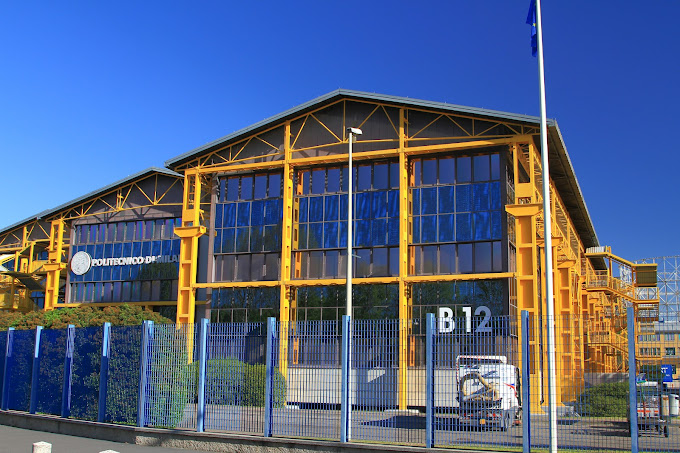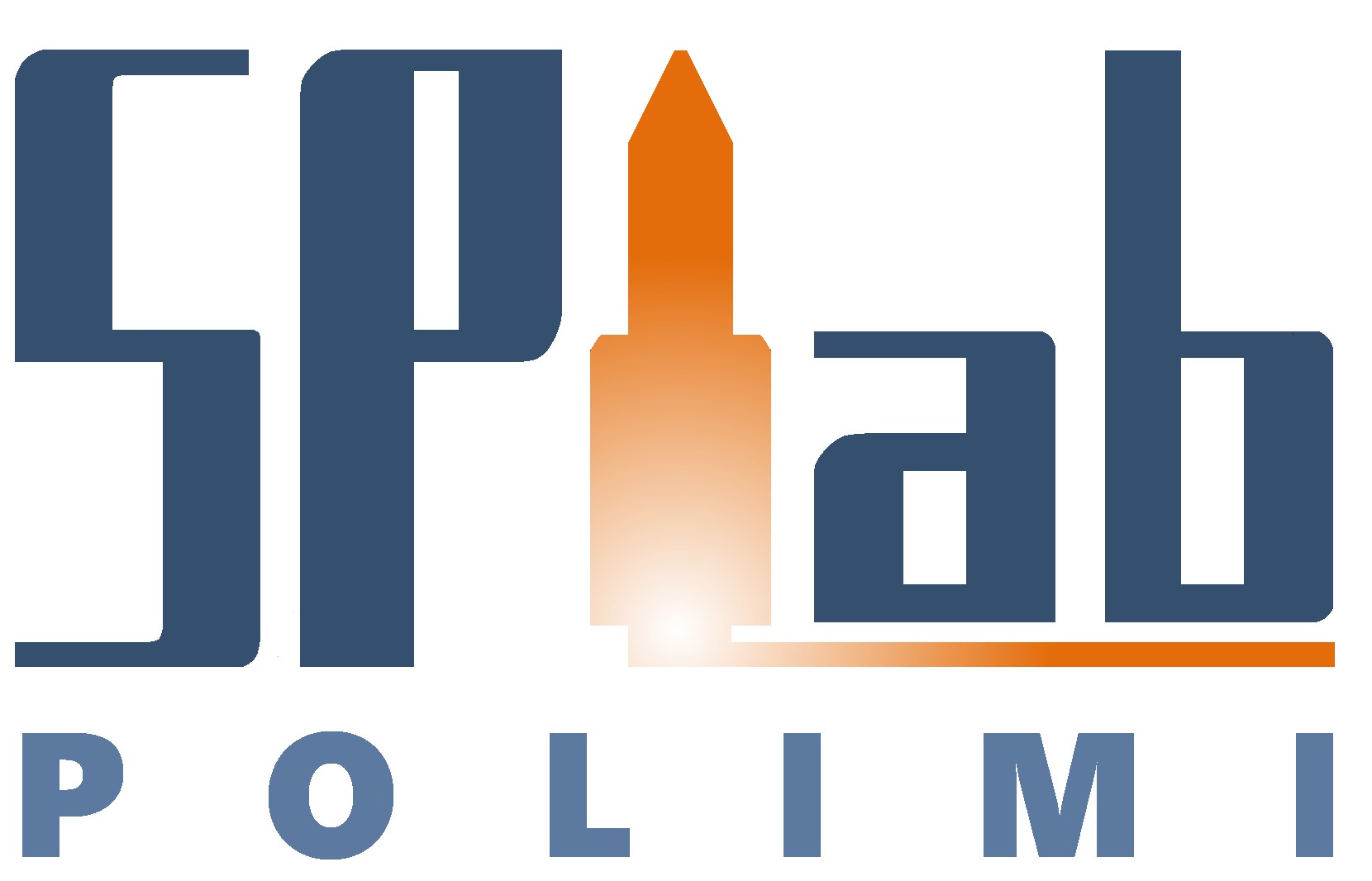Thesis list

@ SPLab
These these activities will be developed at the SPLab, Bovisa South campus.
PoliMi Advisor: F. Maggi
Starting date: March / April 2026
Availability: 1 candidates
Location: SPLab (POLIMI)
Solid propellants are heterogeneous materials. Knowing the microscopic nature allows to predict and understand its macroscopic properties, used for design and manufacturing. This is a great challenge of quality control, mainly in a moment where additive manufacturing and micro-propulsion are becoing interesting fields for solid propulsion.
Solid propellant microstructure can be analyzed through X Ray computed micro-tomography, using specific algorithms developed on purpose, for feature extraction. The student will challenge this specific aspect: understanding how microstructure can be different in sample production, and how it can be characterized numerically and quantitatively.
Coding capacity in Matlab / C / Python is welcome, but not mandatory at the beginning. The student will need to develop coding skills to manage large datasets through parallel computation (the use of OpenMP or OpenMPI is planned).
PoliMi Advisor: F. Maggi / co-advisors S. Carlotti, A.N. Lucarno
Starting date: now
Availability: 1/2 candidates
Location: SPLab (POLIMI)
Additive manufacturing based on extrusion deposition and UV curing is an innovative technology able to overcome the disadvantages of the traditional cast-cure production technique, fostering a greener and more flexible process. Recent studies demonstrated the feasibility of this manufacturing technology, but further works are still required to optimize it. Specifically, the photocurable binder is a key component of the propellant, that highly influences both the UV-curing and the extrusion phases, besides affecting grain properties. Therefore, the development of an optimized formulation is required.
An approach based on a thiol-ene curing mechanism is currently under investigation. The aim of this thesis is to find the most suitable binder formulation (in terms of constituents, amounts and production method) for this specific application. Characterization of chemical and mechanical properties of the cured material is required. The integration of additives for binder property modification is another essential step.
The thesis is experimental and requires full time engagement, in presence.
PoliMi Advisor: F. Maggi
Starting date: February/March 2026
Availability: up to 5 candidates in three groups (chech below for details)
Location: SPLab (POLIMI)
Solid propulsion is typically associated with the emission of chlorine molecules in the plume exhaust. These molecules are associated to different types of environmental impact, from stratosperic ozone depletion to acidification of soil and groundwater.
The SPLab will challenge this problem within a new ESA project looking at ways to reduce the impact of solid propellants. The project will touch different aspects.
- Testing new formulations, collecting pollutants at lab-scale and conceiving some method to work at small scale (rocket).
- Working on the estimation of the impact through innovative life cycle analysis methods.
The work is wide and integrated across 2/3 different working groups, giving the students a complete understanding of the mechanisms of pollution and its mitigation, and of testing at different scales.
Given the challenging coordination, the activity is open to students that have at most 2/3 exams left and can grant a continuing availability. The exam of Space Propulsion (6 or 10 credits) is requested.
The areas of activity are:
- Development of formulation and collection of reaction residues (1/2 students)
- Evaluation of different gaseous/solid collection methods from plume and preliminary design (1/2 student)
- Life Cycle Analysis (LCA) of a space product – solid propulsion system – and comparison of effects generated by different compositions (1 student)
PoliMi Advisor: F. Maggi
Starting date: February 2026
Availability: 1/2 candidates
Location: SPLab (POLIMI)
Within the European project THREAD, the SPLab is studying a new way to control the disintegration of satellites during their atmospheric reentry, using energetic charges. Ignition happens spontaneously and transfers heat to the target object.
The SPLab has developed a simple reentry code where this event is modeled through a low-fidelity point-mass approach. inside this projecy, the student will use and extend the code and will develop parametric studies to understand the connection between reentry path, thermite ignition, and satellite consumption. Statistical approaches will be mostly used.
Python coding will be required. Its preliminary knowledge is preferred but not mandatory.
PoliMi Advisor: F. Maggi
Co-Advisor: to be defined
Starting date: September 2025
Availability: 2 candidates
Location: SPLab (POLIMI)
Satellite demise can be enhanced if energetic reactions are introduced in key components or positions. Within a European project, this solution is under investigation. The candidates will take part to the R&D activities regarding the development of these energetic charges, shaped for the use in satellites. The target of the activity consists of obtaining charges with mechanical consistency and capable of igniting within ranges of temperature, imposed by project requirements.
PoliMi Advisor: S. Carlotti
Starting date: now
Availability: 1 candidate
Location: SPLab (POLIMI)
This work focuses on analysing several microencapsulation techniques and identifying suitable characterization methodologies for the resulting capsules. A preliminary experimental investigation will be carried out to assess the feasibility of the selected methodologies, assessing their effectiveness in encapsulating HTP within a protective shell or matrix to enhance its stability and control its release.
PoliMi Advisor: F. Maggi
Starting date: May/June 2026
Availability: 1/2 candidates
Location: SPLab (POLIMI)
Deatails to be released later.
PoliMi Advisor: F. Maggi
Company Supervisor: Dr. Alessandro Ferrario (D-ORBIT)
Activity begins as soon as possible.
Availability: 1 candidate
Location: hybrid / remote
Self-pressurization in cryogenic and non-cryogenic propellant tanks is a critical phenomenon in space propulsion systems. Understanding and accurately modeling this process is essential for ensuring optimal tank performance, minimizing pressure losses, and improving overall mission efficiency. Several analytical models exist to describe self-pressurization behavior, each offering different approaches and assumptions regarding heat and mass transfer mechanisms. These models allow to design and analyze self-pressurized space propulsion systems with low effort in a short time, without relying on complex and time -consuming CFD simulations.
This thesis aims to perform a comprehensive analytical comparison of these models, validating them against ad-hoc experimental setups, and explore potential enhancements through numerical modeling with EcosimPro. The research shall implement a self-pressurization model selected from literature , and define a new experimental setup for their validation. The thesis shall then identify the most accurate and computationally efficient approach to self-pressurization modeling of a tank.
Basic experience with numerical engineering tools (MATLAB, Python, …) is required. Previous experience with EcosimPro is a plus as well as previous experience with fluid modeling tools (e.g. CoolProp). Working proficiency of the English language is required.

Corporate theses
These thesis are planned and managed by a company. These theses may bring you outside POLIMI. Not in every case. The student must be aware that, typically, financial support is not granted by the hosting institute which decides timing, and methods for thesis development.

Project @ DAER
Cooperative project laboratory involving developed at the Dept. of Aerospace Science and Technology, Bovisa South campus.
The development of reusable launch vehicles is a multidisciplinary effort, requiring advancements in several disciplines, such as materials, structures, propulsion, aerodynamic and guidance and control systems. The Reusable Launchers Thesis Lab offers students the opportunity to conduct their thesis within a collaborative research environment, contributing to the broader framework of reusable launcher design.
The laboratory will begin in April and will include regular review meetings with the supervising professor, as well as joint review sessions involving all participating students.
The selection process consists of two steps:
a. an evaluation based on GPA and attended and passed courses relevant to the chosen topic – note: students can select up to 3 topics.
b. an interview with the supervising professor for the top 5 ranked candidates in each topic.
Note that a maximum of two remaining exams is required.
The deadline for filling this form is March 28th
You can read more about the available topics and advance your candidacy HERE
Note #1: candidacy for internal theses should be addressed to the advisor of the activity. Send an email with subject “CANDIDACY [FAMILY-NAME] THESIS”.
This email will have to include two PDF attachments: a CV in English and a list of exams with scores.
Note #2: address the candidacy for corporate theses to Prof. Maggi (check deadlines, if present). A selection process will follow. Send an email with subject “CANDIDACY [FAMILY-NAME] CORPORATE THESIS”. This email will have to include two PDF attachments: a CV in English and a list of exams with scores.
Last Update: Jan 19th, 2026
